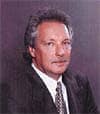New Beginnings

With this issue, the Sleep Review family celebrates its fifth anniversary. The magazine came along at an exciting time. When we launched our premiere issue, Dr Emmanuel Mignot had just discovered the narcolepsy gene in dogs, the Association of Sleep Disorders Centers had expanded its mission by becoming the American Academy of Sleep Medicine (AASM), and the discovery of the link between obstructive sleep apnea and heart disease was right around the corner.
The developments of the field have been and continue to be reflected in the pages of Sleep Review. In this issue we report on a new cooperative agreement between the AASM, the American College of Chest Physicians, and the American Thoracic Society, exciting discoveries presented at CHEST 2005 in Montreal and the American Association for Respiratory Care’s conference in Las Vegas, as well as new research that may reveal a link between periodic limb movements and CPAP titration.
However, as we look forward, we also take time to reflect. Dr William Dement, who is frequently referred to as the “Father of Sleep” because of his key role in the early development of the field, was one of our first guest editors and he returns in this issue with an update on the editorial he wrote 5 years ago. In it, he makes the important point that as much as the sleep field has advanced in the past few years, it still faces a problem of public awareness.
Simply put, most people in our 24/7 society do not put much value on sleep. Successful, intelligent people who work out and take care of their health otherwise regularly skimp on their sleep in favor of squeezing a few more activities into their busy days. Rather than being viewed as unhealthy, people who try to get by on less sleep are often seen as more productive or harder working.
The field of medicine is as guilty of this as the rest of society. In a 2004 report by Circadian Technologies, a company that specializes in advising companies on shift-work policies, the health care industry finished dead last in the amount of training in healthy sleep habits offered to its shift workers. The idea that the best way to test competency in a field is to make someone perform tasks while sleep deprived is still as popular in medicine as it is in fields such as the military and emergency services.
We cannot turn back the clock on our caffeinated high-speed modern society and go back to a time before electric lighting when our sleep-wake cycle was entirely ruled by the sun. However, there are things that sleep medicine professionals can do to increase awareness of the importance of sleep to healthy living. On March 27, the National Sleep Foundation’s annual Sleep Awareness Week kicks off in Washington, DC, and if you have never attended this event, I encourage you to do so. It is a great opportunity to educate policy makers about sleep disorders and the dangers of sleep deprivation (including drowsy driving), as well as a chance to network with others in the field.
Information about attending National Sleep Awareness Week can be found online at www.sleepfoundation.org or by contacting the National Sleep Foundation at (202) 347-3471. In addition, if you cannot make it to Washington, DC, to take part in person, consider marking the occasion in your home town by sending a press release to your local media outlets about sleep disorders, healthy sleep habits, and the work you do. Together we can change the perception of sleep from a waste of time to a valuable component of our health.
Lena Kauffman
[email protected]



